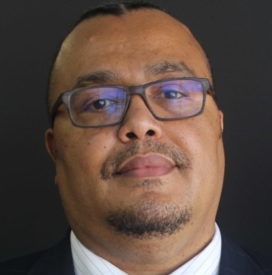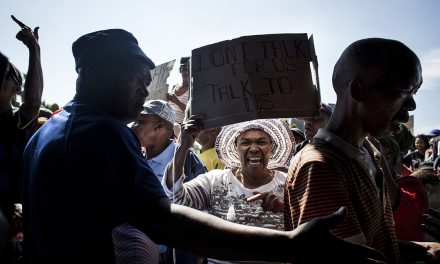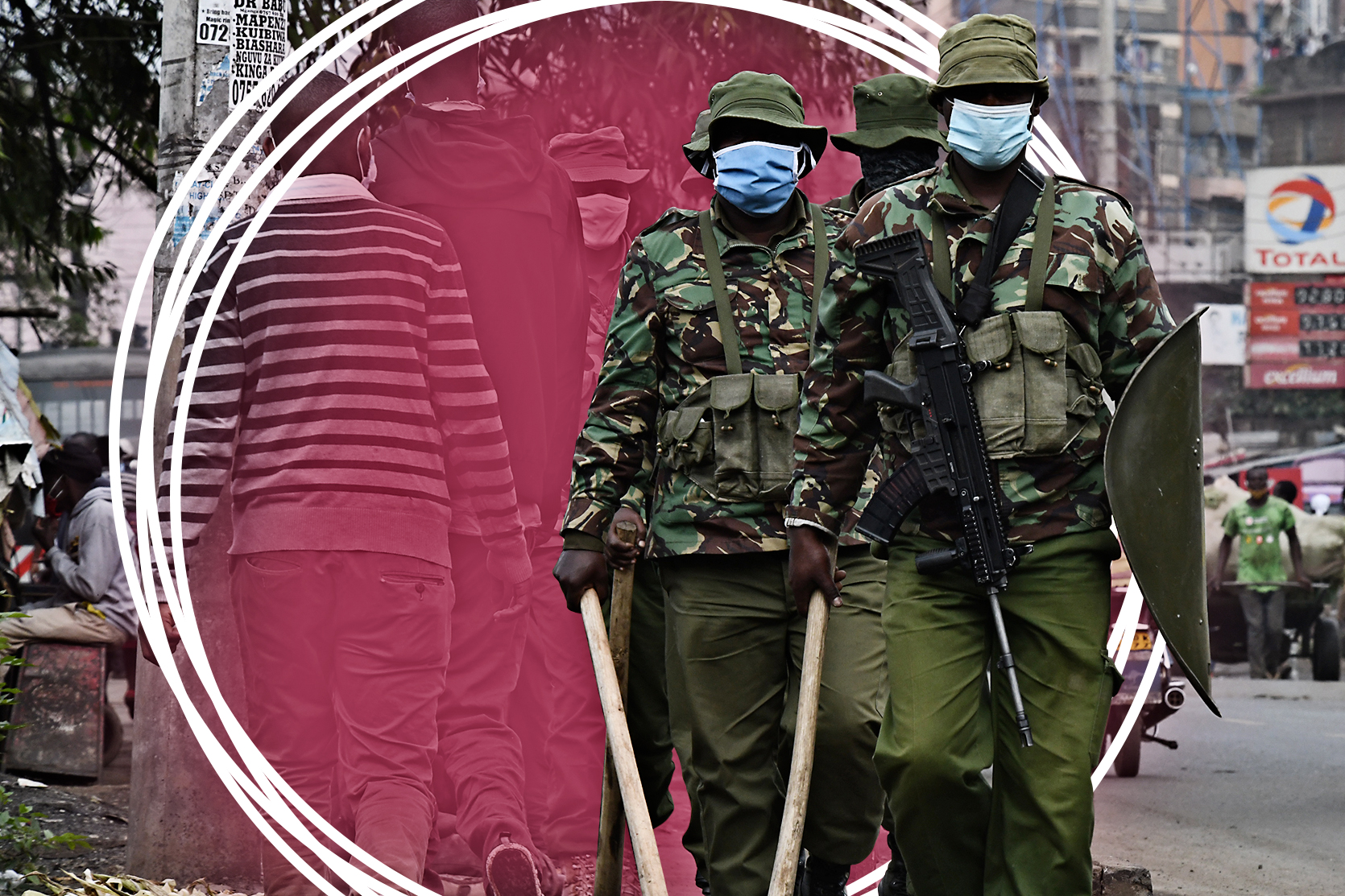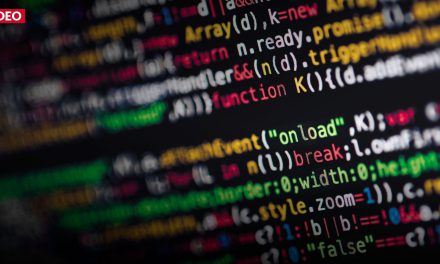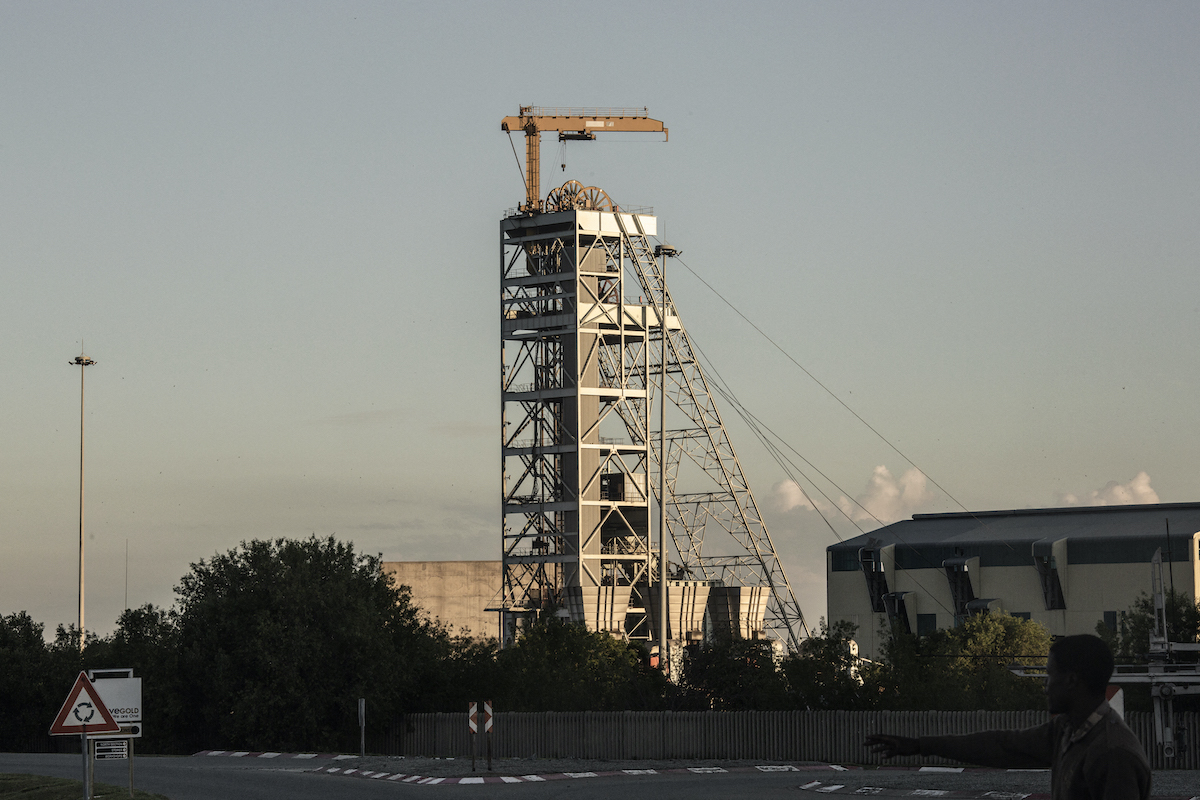Stuck in a rut
“If we can just get to the next scheduled elections in 2022, that will be an achievement.” – Lesotho political commentator
After barely a year in office, Prime Minister (PM) Moeketsi Majoro finds himself in an all too familiar predicament that also bedevilled his predecessors. No Prime Minister has served out a full five-year term over the past decade. Now it appears Majoro and his ruling coalition may not be able to escape this chaotic political cycle.
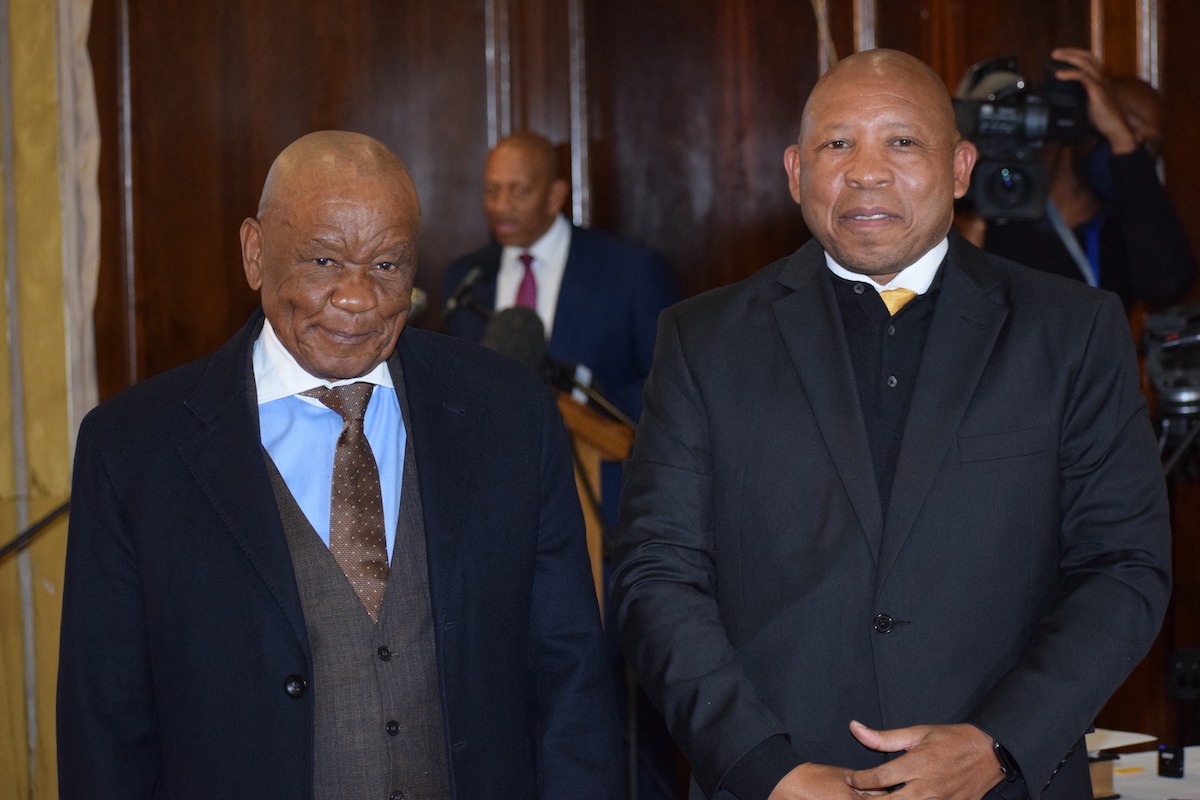
Lesotho’s former Prime minister Thomas Thabane (L) with the current Prime Minister Moeketsi Majoro, during the swearing in ceremony at the Royal Palace in Maseru in the morning of May 20, 2020. Thabane resigned, ending a months-long political crisis that engulfed the kingdom after he was accused of playing a conspiratory role in the 2017 murder of his estranged wife. Photo: Molise Molise/AFP
The major parties that make up the ruling coalition are the All Basotho Convention (ABC) (Majoro’s party) and the Democratic Congress (DC). Majoro’s appointment was met with much optimism, as he is a seasoned economist and former Finance Minister. However, while a competent technocrat may be able to examine data and formulate efficient policies, he may not be able to soothe existing tensions between rival political factions. This ongoing political malaise does not bode well for the strengthening and entrenchment of good governance in the mountain Kingdom of Lesotho.
To constitute a government, a party or coalition must enjoy a simple majority in the 120-seat parliament, which equates to a total of 61 seats. Before the recent political developments, detailed below, the ruling coalition had 66 seats.
Majoro recently fired Justice Minister Professor Nqosa Mahao, Police Minister Mamoipone Senauoane, Forestry Minister Motlatsi Maqelepo and Deputy Health Minister Nto Moakhi. This move is seen as an attempt to purge his cabinet of potential defectors. In response, the axed former Justice Minister and deputy leader of the ABC, Professor Mahao, formed a new party called the Basotho Action Party (BAP).
The formation of the splinter party from the ABC caused some consternation, as Mahao claimed Majoro lacked the parliamentary majority he needed to continue governing. Mahao further claimed that 20 parliamentarians have agreed to join his BAP. As floor crossing is allowed, the defectors will cross with their parliamentary seats. If Mahao’s allegation proves true, the coalition would only have 46 seats, leading to a hung parliament.
The BAP has threatened to table a motion of no confidence in Majoro once the defecting parliamentarians have officially crossed over to his party. If Mahao does indeed manage to secure sufficient backing to create a hung parliament, it would be the third change of administration in the past five years.
Majoro, meanwhile, has tried to assure his supporters and the international community that his party remains stable and has the required majority to remain in power. In a show of solidarity, Deputy Prime Minister (DPM) Mathibeli Mokhothu (DC) expressed his party’s commitment to the ruling coalition.
The uncertainty regarding the stability of the ruling coalition and deteriorating political situation has led to a preventative intervention from the Southern African Development Community (SADC). This came in the form of Special Envoy former, Minister Jeff Radebe, being deployed on behalf of President Cyril Ramaphosa, the SADC Facilitator to the Kingdom of Lesotho on 3 May 2021. The Special Envoy was tasked to gain a better understanding of the political situation. President Ramaphosa is fulfilling his mandate to work closely with all parties to finalise the Reform Programme.
As has become the norm, the Special Envoy paid a courtesy visit to His Majesty King Letsie III and PM Majoro. To better understand the political developments, he also met with the leader of the DC and DPM Mokhothu; Professor Mahoa in his new role as leader of the newly-formed BAP; Monyane Mleleki, leader of Alliance of Democrats (AD); Mr Mothetjoa Metsing, leader of the Lesotho Congress for Democracy (LCD) and Former DPM of Lesotho.
During the closed-door engagements with the various stakeholders, one can only assume the tone and content of the deliberations:
- King Letsie III – called for the PM and DPM to remain united and to not collapse the government before the elections in 2022.
- The PM – expressed his displeasure at the defectors and justified his decision to remove them from his cabinet.He reassured the Special Envoy he and the DC still has the requisite majority to govern and that there will be no mass exodus from the ABC to the BAP and how Lesotho was on track to implement any outstanding reforms.
- The DPM – reiterated the DC’s commitment to the coalition government as long as ABC stay united and discussed issues related to the reform process.
- The BAP’s Mahao – blaming the ABC and its leader for a litany of problems and his expulsion and how, in his opinion, his removal from government would be a loss for the reform process.
While the new political developments playing out in Lesotho may involve new actors, the root causes remain the same. Weak institutions and a deficit of good governance persist, coupled with selfish political interests for economic gain at the expense of the citizenry. Can we really, therefore, be surprised that the kingdom finds itself in this situation again, and so soon? If reforms are not expeditiously implemented, we cannot be surprised if the country arrives at a similar junction after the 2022 election. The formation of coalitions based solely on gaining access to power and influence are doomed and Lesotho has demonstrated this time and time again.
In short, the SADC Facilitator should ensure he has a dedicated team focussing on Lesotho to assist all parties in the kingdom to preserve and secure all progress made towards attaining the goal of implementing the much needed reforms. All efforts should be made to ensure the ruling coalition does not collapse before the general elections in 2022. This will assist in reducing the trust deficit while also creating a conducive peaceful environment during the upcoming election period and the holding of free, fair and credible elections.
This article appeared in Mail & Guardian on 12 May: https://mg.co.za/opinion/2021-05-12-lesothos-political-impasse-a-case-of-deja-vu/
Craig Moffat, PhD is the Head of Programme: Governance Delivery and Impact for Good Governance Africa. He has more than 17 years of practical experience working for government institutions and multilateral organisations. He was previously employed by the South African Foreign Service, where he worked extensively at identifying and analysing security threats towards South Africa as well as the southern Africa region. Previously, he was the political advisor for the Pretoria Regional Delegation of the International Committee of the Red Cross. He holds a PhD in Political Science from Stellenbosch University.

